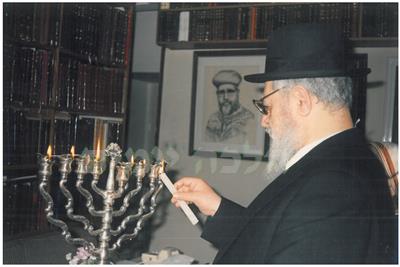







This week we bring you three expert speakers.
The Pimentel are one of the oldest Sephardic families in The Netherlands.
We are hoping to trace people saved by Henriette and their family members. If you know anyone, please forward this message.
Sunday Jan 10, 2021. 2pm NYC, 7pm London, 8pm Amsterdam/Paris, 9pm Jerusalem.
Join Zoom Meeting: https://us02web.zoom.us/j/86549610494
Thanks to everyone who supports our work. If you are not already a patron, please consider a small monthly donation. As little as $5/month makes a huge difference. https://www.patreon.com/sephardi
If you can't get into the Zoom meeting, there is an overflow on Facebook at: https://www.facebook.com/sephardicgenealogy
Best wishes,
Ton Tielen and David Mendoza
Sephardic World
לוח זמני תפלה לחורף תשפ״א
מוצאי שבת | ערבית | שקיעה | מנחה שבת | סוף זמן קריאת שמע | הדלקת נרות | מנחה וקבלת שבת | תאריך | שבת פרשת |
Shabbat Ends | Arbit | Sunset | Minha | Shema before | Candle Lighting | Minha & Kabbalat Shabbat | Date | Parasha |
PM | PM | PM | PM | AM | PM | PM |
|
|
5:09 | 5:05 | 4:10 | 3:35 | 10:19 | 3:54 | 3:54 | 8/9 Jan | שמות |
Q & A on Parashat Shemot
All references are to the verses and Rashi’s commentary, unless otherwise stated.
- Why does the verse say “And Yosef was in Egypt”?
1:5 – This verse adds that, despite being in Egypt as a ruler, Yosef maintained his righteousness. - “…And they will go up out of the land.” Who said this and what did he mean?
1:10 – Pharaoh said it, meaning that the Egyptians would be forced to leave Egypt. - Why did Pharaoh specifically choose water as the means of killing the Jewish boys? (Two reasons.)
1:10,22 – He hoped to escape divine retribution, as G-d promised never to flood the entire world. Also, his astrologers saw that the Jewish redeemer's downfall would be through water. - “She saw that he was good.” What did she see “good” about Moshe that was unique?
2:2 – When he was born, the house was filled with light. - Which Hebrew men were fighting each other?
2:13 – Datan and Aviram. - Moshe was afraid that the Jewish People were not fit to be redeemed because some among them committed a certain sin. What sin?
2:14 – Lashon hara (evil speech). - Why did the Midianites drive Yitro's daughters away from the well?
2:17 – Because a ban had been placed on Yitro for abandoning idol worship. - How did Yitro know that Moshe was Yaakov's descendant?
2:20 – The well water rose towards Moshe. - What lesson was Moshe to learn from the fact that the burning bush was not consumed?
3:12 – Just as the bush was not consumed, so too Moshe would be protected by G-d. - What merit did the Jewish People have that warranted G-d’s promise to redeem them?
3:12 – That they were destined to receive the Torah. - Which expression of redemption would assure the people that Moshe was the true redeemer?
3:16,18 – “I surely remembered (pakod pakadeti ).” - What did the staff turning into a snake symbolize?
4:3 – It symbolized that Moshe spoke ill of the Jews by saying that they wouldn't listen to him, just as the original snake sinned through speech. - Why didn't Moshe want to be the leader?
4:10 – He didn't want to take a position above that of his older brother Aharon. - “And Hashem was angry with Moshe…” What did Moshe lose as a result of this anger?
4:14 – Moshe lost the privilege of being a kohen . - What was special about Moshe's donkey?
4:20 – It was used by Avraham for akeidat Yitzchak and will be used in the future by mashiach . - About which plague was Pharaoh warned first?
4:23 – Death of the firstborn. - Why didn't the elders accompany Moshe and Aharon to Pharaoh? How were they punished?
5:1 – The elders were accompanying Moshe and Aharon, but they were afraid and one by one they slipped away. Hence, at the giving of the Torah, the elders weren't allowed to ascend with Moshe. - Which tribe did not work as slaves?
5:5 – The tribe of Levi. - Who were the: a) nogsim b) shotrim ?
5:6 – a) Egyptian taskmasters; b) Jewish officers. - How were the shotrim rewarded for accepting the beatings on behalf of their fellow Jews?
5:14 – They were chosen to be on the Sanhedrin.

ברכת הגומל
לחולה – קורונה
שאלה: מי שהיה חולה בקורונה, ולא היה בכלל סכנה
ממש, רק נחלה עד שנאלץ לשכב במטה, האם צריך לברך הגומל? ומה הדין אם חלה בקורונה
אך לא הרגיש תסמינים?
בהלכה
הקודמת ביארנו
באופן כללי, כי ארבעה חייבים בברכת הגומל, ואלו הם: יורדי הים כשיעלו ממנו, והולכי
מדברות כשיגיעו לישוב, ומי שהיה חולה ונתרפא, ומי שהיה חבוש בבית האסורים ויצא.
וסימן לדבר (לזכרון אלו הארבעה), וכל החיי”ם יודוך סלה. ראשי תיבות, ח'בוש,
י'ם, י'סורין, מ'דבר. וחבוש הוא החבוש בבית באסורין ויצא משם, ים אלו יורדי הים
באניות ששבו, יסורין הם הייסורים שבאו על החולה שנתרפא, ומדבר אלו הולכי המדברות
שבאו אל עיר מושב.
ובענין מה שכתבנו
שחולה שנתרפא צריך לברך הגומל, כתב הרמב”ן בספר תורת האדם, “לענין ברכת
הגומל לחולה שנתרפא, לאו דוקא בחולה שיש בו סכנה, אלא כל שעלה למיטה, צריך להודות
בברכת הגומל, שכל שעלה למיטה דומה למי שהעלוהו לגרדום לידון, שצריך פרקליטים
(סנגורים) גדולים להנצל, וברחמי הקדוש ברוך הוא הזמין לו פרקליטים טובים על ידי
מצות ומעשים טובים שעשה”. עד כאן.
וכיוצא בזה כתב
הרשב”א בתשובה, ועוד מרבותינו הראשונים. ורבינו המאירי הביא את דעת האומרים
שאין צריך לברך הגומל אלא חולה שיש בו סכנה, וכתב, ואין אני מודה בכך, אלא כל שעלה
למיטה וירד מברך הגומל, שהרי הוא כמי שהעלוהו לגרדום לידון.
ולענין מעשה פסק מרן
השלחן ערוך (סימן ריט סעיף ח): על כל חולי צריך לברך הגומל, אפילו אינו חולי של
סכנה, אלא כל שעלה למיטה וירד, מפני שדומה כמי שהעלוהו לגרדום. והרמ”א בהגה
כתב, ויש אומרים שאינו מברך אלא על חולי שיש בו סכנה כגון מכה של חלל, וכן נוהגים
באשכנז. עד כאן. ובאמת שאף למנהג האשכנזים, יש אומרים שעל כל חולי שנאלץ לשכב
במטה, צריך לברך הגומל.
והמנהג פשוט אצל
הספרדים ובני עדות המזרח לברך הגומל על כל חולי אף על פי שאין בו סכנה, ובלבד שהיה
מרותק למטה בחוליו.
לכן לענין
השאלה,
מי שחלה בקורונה בצורה
רצינית, עד כדי כך שהיה שוכב במיטה, כאשר יבריא בחוליו, עליו לברך ברכת הגומל בפני
עשרה בני אדם מישראל. אבל אם חלה באופן שלא הרגיש כלל בתסמיני המחלה, אינו רשאי
לברך ברכת הגומל, כי על ענין כמו זה לא תיקנו רבותינו ברכה. אולם, “טוב
להודות לה'”, ויודה בפיו בפרקי תהלים וכדומה. אך לא בברכה ממש.
The
“Ha’Gomel” Blessing for One Who Has Recovered from the Coronavirus
Question: If one was sick with the Coronavirus but
was not in any life-threatening danger and the illness merely caused one to be
bedridden, must one recite the “Ha’Gomel” blessing?
Answer: In the previous Halacha we explained that there are four
types of people that must recite the “Ha’Gomel” blessing:
Sea travelers upon safely docking, individuals travelling through the desert
upon reaching an inhabited settlement, a sick person who has recovered, and an
incarcerated person who was released. A way to remember these four types is
with the verse וכל החיי”ם יודוך סלה.
This is an acronym for CH’avush, Y’am, Y’isurim, M’idbar. Chavush refers
to one who was imprisoned and then freed, Yam refers to sea
travellers who have docked safely, Yisurim refers to the
suffering experienced by a person who was ill and now healed, and Midbar refers
to those travelling through the desert who have reached an inhabited place.
Regarding
the obligation of one who was sick and then healed to recite the “Ha’Gomel” blessing,
the Ramban writes in his Sefer Torat Ha’Adam: “Regarding the “Ha’Gomel” blessing
for a sick person who has recovered, this does not apply specifically to a
person with a life-threatening illness; rather, as long as one was bedridden,
one must praise Hashem with the “Ha’Gomel” blessing, for anyone
who has been bedridden is considered to have been seated on the prosecutor’s
bench awaiting judgment and needs a great defense in order to be saved. Hashem
in His great mercy provided this person with the necessary defense through the
Mitzvot and good deeds that he has performed.”
The
Rashba and other Rishonim write similarly. The Meiri quotes the opinions that
write that only one who recovers from a life-threatening illness recites the “Ha’Gomel” blessing
and then writes, “I do not agree with this; rather anyone who was bedridden and
then arose [from his illness] must recite the “Ha’Gomel” blessing for
he is considered to have been judged on the prosecutor’s bench.”
Halachically
speaking, Maran Ha’Shulchan Aruch (Chapter 219, Section 8) rules, as follows:
“For any illness, even one which is not life-threatening, one must recite the “Ha’Gomel” blessing,
for as long as one was bedridden and since recovered, one is considered to have
been seated on the prosecutor’s bench awaiting judgment.” The Rama there notes,
however, “Some say that one only recites the “Ha’Gomel” blessing
for a life-threatening illness, such as an internal injury, and this is the
Ashkenazi custom.” Nevertheless, some say that even according to the Ashkenazi
custom, if one’s illness caused one to be confined to bed, one must recite
the “Ha’Gomel” blessing.
The
widespread custom among the Sephardic and Middle Eastern Jews is to recite
the “Ha’Gomel” blessing for any illness, even
non-life-threatening, so long as one was bedridden as a result of the illness.
Thus,
halachically speaking, if one fell ill as a result of COVID-19 to the extent that one
became bedridden, when one recovers, one must recite the “Ha’Gomel” blessing
when one recovers. Nevertheless, even if one tests positive for COVID-19
antibodies but one did not suffer from any of the common symptoms, one may not
recite the blessing, for our Sages did not enact the blessing to be recited
under such circumstances. Nevertheless, it is appropriate for one to offer
thanks to Hashem by reciting several chapters of Tehillim and the like.


























